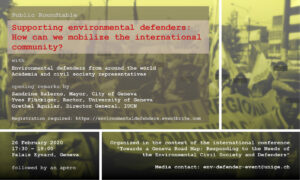Update
Environmental Human Rights Defenders
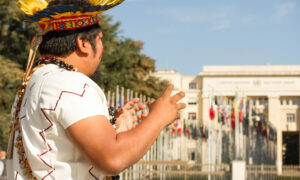
Last updated: 14 Dec 2023
Environmental human rights defenders are those who strive to protect and promote human rights relating to the environment. However, evidence suggests that they remain highly vulnerable and under attack across the globe. This update looks at the steps taken by the international community in Geneva to protect, promote, and uphold the rights of environmental defenders.
Human rights and the environment are intrinsically intertwined: a clean, healthy and sustainable environment is essential in the enjoyment of our human rights. Governments must protect and promote and businesses must respect environmental rights if we wish to tackle environmental challenges, such as the triple planetary crisis.
Environmental rights are not abstract, remote, irrelevant concepts; they are measurable, prominent and functional aspects of society and its ecology. More than 100 countries incorporate constitutional rights to a healthy environment, yet communities and environmental defenders continue to face the worst consequences. When environmental rights are violated, people and the planet suffer from reduced health and well-being.
LATEST NEWS
- UAE: UN expert denounces new charges brought against jailed human rights defenders during COP28 | OHCHR | 14 December 2023
The United Arab Emirates had opened fresh trials against human rights defenders, who were already due to be released, while it was hosting COP28, a UN expert said today.- Celebrating the UN Declaration on Human Rights Defenders | Michel Forst | 9 December 2023
As we celebrate the 25th anniversary of the UN Declaration on Human Rights Defenders this year, there is a myriad of questions to reflect on, along the lines: have things improved for defenders? Are they safer than they were 25 years ago? Have we done enough to ensure that they can safely exercise their right to defend human rights?- Celebrating 25 years of the UN Declaration on human rights defenders | ISHR | 9 December 2023
25 years ago, the United Nations adopted the Declaration on Human Rights Defenders. The declaration has been essential to protect those who defend human rights. It’s time to celebrate the Declaration, human rights defenders and all the contributions they have brought to our societies.- How criminalisation is being used to silence climate activists across the world | The Guardian | 12 October 2023
A Guardian investigation finds growing number of countries passing anti-protest laws as part of playbook of tactics to intimidate people peacefully raising the alarm.- Almost 2,000 land and environmental defenders killed between 2012 and 2022 for protecting the planet | Global Witness | 13 September 2023
At least 177 land and environmental defenders around the world were killed last year, taking the total number of defenders killed between 2012 and 2022 to 1,910, according to the new report.- The 1st ASEAN Environmental Rights Working Group Meeting | ASEAN | 22 August 2023
The ASEAN Environmental Rights Working Group (AER WG) convened the 1st Meeting on 21-22 August 2023 in Bangkok, Thailand. The Meeting discussed and agreed on the timeline and goals of the working group with a focus on developing a comprehensive framework in line with the international norms and standards on the rights to a safe, clean, healthy and sustainable environment.
Who are environmental human rights defenders?
According to the United Nations, environmental human rights defenders (EHRDs) are “individuals and groups who, in their personal or professional capacity and in a peaceful manner, strive to protect and promote human rights relating to the environment, including water, air, land, flora and fauna.”
Environmental defenders, many of whom are part of or represent indigenous peoples, remain highly vulnerable and under attack across the globe. Evidence suggests that as the climate crisis intensifies, violence against EHRDs also increases, whether through assaults, murders, intimidation, harassment, stigmatization, and criminalization.
In 2022, at least 177 attacks against environmental defenders were recorded worldwide by the Global Witness, taking the total number of defenders killed between 2012 and 2022 to 1,910. Amongst these fatal attacks, 34% target Indigenous people, despite them only making up 5% of the world’s population. During the 46th session of the Human Rights Council in 2021, Mary Lawlor, Special Rapporteur on human rights defenders, presented a report showing that among 1,323 human rights defenders killed since 2015, EHRDs are the most targeted (A/HRC/46/35).
As the field of human rights obligations related to a clean, safe, healthy and sustainable environment expands, the need to protect those who protect our environmental rights also becomes more urgent.
UN Declaration on Human Rights Defenders
The Declaration on Human Rights Defenders, adopted by the General Assembly on 9 December 1998 in its resolution 53/144, is based on and incorporates human rights enshrined in legally-binding international instruments. The Declaration reaffirms rights that are instrumental to the defense of human rights, including, inter alia, freedom of association, freedom of peaceful assembly, freedom of opinion and expression, and the right to gain access to information, to provide legal aid and to develop and discuss new ideas in the area of human rights (see A/63/288, annex, para. 2).
The Declaration thus requires that states:
- Recognize the value and important contribution of human rights defenders to peace, sustainable development and human rights;
- Respect human rights defenders on a non-discriminatory basis, protect them against any arbitrary action as a consequence of the legitimate exercise of the rights referred to in the Declaration, and ensure access to effective remedies in the case of violations and prompt and impartial investigations of alleged violations;
- Reinforce their work by creating an enabling environment, through legislative, administrative and other steps, promoting public understanding of human rights, creating independent national institutions for the promotion and protection of human rights and promoting the teaching of human rights.
Defenders Policy
The UN has recognized the threats to environmental defenders and called for their protection. UNEP builds on this work to support environmental defenders through its Defenders Policy to promote greater protection for individuals and groups who are defending their environmental rights and identifies solutions to mitigate the abuse of environmental rights which affects a growing number of people in many parts of the world.
- Denounce the attacks, torture, intimidation and murders of environmental defenders;
- Advocate with states and non-state actors, including business, for better protection of environmental rights and the people standing up for these rights;
- Support the responsible management of natural resources;
- Request government and companies’ accountability for the different events where environmental defenders have been affected / murdered.
Geneva Roadmap 40/11 for Environmental Human Rights Defenders
We have no choice: We have to mobilize the international community to strengthen the defense of environmental defenders.
– Yves Flückiger, Rector, University of Geneva
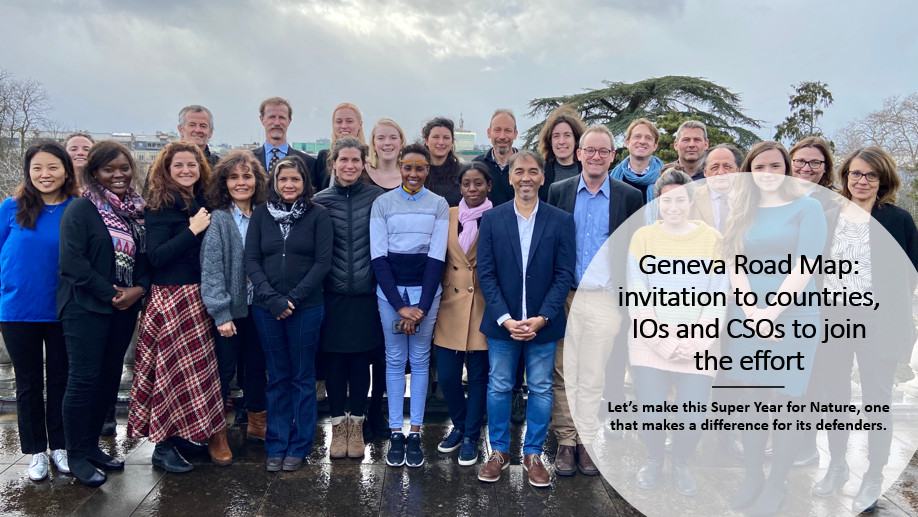
Environmental Human Rights Defenders Workshop at Palais Eynard, February 2020
A wide range of civil society and multilateral efforts are emerging in Geneva. The Human Rights Council resolution 40/11 – Recognizing the contribution of environmental human rights defenders to the enjoyment of human rights, environmental protection and sustainable development– was adopted by the Human Rights Council by consensus on 21 March 2019. Following the adoption, platforms, coalitions and networks of defenders met in February 2020 to launch the Geneva Roadmap 40/11 for the implementation of this Human Rights Council Resolution 40/11.
The actions envisaged at the time were thwarted by the pandemic and its consequences, but the orientations of this Roadmap defined then remain fully relevant. Its preparation included an expert meeting to help articulate and put forward possible steps of action for the research, environmental and human rights communities to feed into human rights processes as well as environmental ones.
Protecting EHRDs in Multilateral Agreements
In response to the growing threats towards environmental defenders, instruments at the global and regional level already exist, and a growing number of States have put national responses mechanisms in place to protect those engaged in protecting our environmental rights.
IUCN Resolution on EHRDs
Members of the IUCN voted to adopt resolution (WCC 2020 Res 115), “Protecting environmental human and peoples’ rights defenders and whistleblowers”, that urges governments to adopt and uphold laws aimed at protecting them. The resolution also encourages the IUCN Director General, in collaboration with State, non-State members, and with EHRDs, to develop an IUCN policy and action plan to protect environmental defenders and whistleblowers.
Escazú Agreement
The Regional Agreement on Access to Information, Public Participation and Justice in Environmental Matters in Latin America and the Caribbean, or Escazú Agreement, was adopted in Escazú, Costa Rica, on 4 March 2018, and entered into force on 22 April 2021.
A landmark agreement for the region, the treaty is also the first legally binding instrument to include specific provisions for the protection and promotion of human rights defenders in environmental matters. Under Article 9 “Human rights defenders in environmental matters”, member States must guarantee a safe and enabling environment for environmental defenders, protect and promote their rights including the freedom to participate in activities regarding environmental matters, and take measures to prevent, investigate and punish attacks, threats or intimidations against them.
UNECE Special Rapporteur on Environmental Defenders
At its third extraordinary session in Geneva on 23-24 June 2022, the Meeting of the Parties to the Convention on Access to Information, Public Participation in Decision-Making and Access to Justice in Environmental Matters (Aarhus Convention) elected by consensus Mr. Michel Forst as the independent Special Rapporteur on environmental defenders. The Special Rapporteur’s role – operational with immediate effect – is to take measures to protect any person experiencing or at imminent threat of penalization, persecution, or harassment for seeking to exercise their rights under the Aarhus Convention.
The Special Rapporteur was elected pursuant to the decision establishing a rapid response mechanism for the protection of environmental defenders adopted its seventh session in Geneva, on 21 October 2021. Advancing practical measures to uphold the right to a clean, healthy and sustainable environment, this is the first such mechanism specifically safeguarding environmental defenders to be established within a legally binding framework either under the United Nations system or other intergovernmental structure.
Special Procedures of the Human Rights Council
Independent human rights experts with mandates to report and advise on human rights from a thematic or country-specific perspective, the following UN Special Rapporteurs have worked on the protection of environmental human rights defenders
Special Rapporteur on the situation of human rights defenders
The UN Special Rapporteur on the situation of human rights defenders, first established by the Human Rights Commission in 2000 and renewed by the Human Rights Council in 2020, aims to promote the effective implementation of the UN Declaration on Human Rights Defenders.
Mary Lawlor is the Special Rapporteur on the situation of human rights defenders since 1 May 2020. As part of her mandate to seek, receive and respond to information on the situation of human rights defenders, including environmental defenders. In her report to HRC46, she stated that among 1,323 human rights defenders killed since 2015, EHRDs are the most targeted (A/HRC/46/35).
Special Rapporteur on the rights of indigenous peoples
As a significant proportion of environmental human rights defenders are from indigenous communities, the work of the UN Special Rapporteur on the rights of indigenous peoples allows the independent expert to examine and respond to information on the situation of human rights defenders, to engage with Governments and others on the implementation of the Declaration and to recommend strategies to protect human rights defenders. Created in 2001 by the Human Rights Commission, the Special Rapporteur also regularly draws attention to the threats against indigenous human rights defenders in country visits, reports and statements.
Francisco Cali Tzay was appointed Special Rapporteur on the rights of indigenous peoples in March 2020 and took up the role on 1 May 2020. In a report by previous mandate holder Victoria Tauli-Corpuz, the mandate also emphasized how protected areas and conservation measures to protect biodiversity have also been associated with human rights violations against indigenous peoples in many parts of the world (A/71/229).
Special Rapporteur on human rights and the environment
The mandate on human rights and the environment exists to examine the human rights obligations relating to the enjoyment of a clean, healthy and sustainable environment. The Special Rapporteur is tasked to identify the challenges and obstacles to the global recognition and implementation of such a right, and to report human rights violations.
David Boyd is the Special Rapporteur on human rights and the environment, whose mandate was extended in March 2021. In his report to the 43rd session of the Human Rights Council, “Right to a healthy environment: good practices” (A/HRC/43/53), the Special Rapporteur emphasized that “a crucial aspect of public participation involves the protection of environmental human rights defenders, who are often harassed, intimidated, criminalized or even murdered.”
Right to a Healthy Environment & EHRDs
The landmark recognition of the right to clean, health, and sustainable environment at the 48th session of the Human Rights Council has also recognized the human rights of environmental human rights defenders, especially within the context of business and corporate activities.
Recalling the Guiding Principles on Business and Human Rights, which underscore the responsibility of all business enterprises to respect human rights, including the rights to life, liberty and security of human rights defenders working in environmental matters, referred to as environmental human rights defenders.
— The human right to a clean, healthy and sustainable environment (A/HRC/RES/48/13)
Role of International Geneva
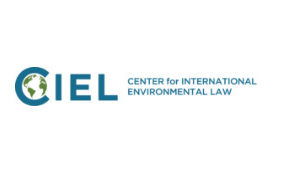
Center for International Environmental Law (CIEL)
CIEL is committed to strengthening and using international law and institutions to protect the environment, promote human health, and ensure a just and sustainable society.

Earthjustice
Earthjustice is a nonprofit public interest environmental law organization.
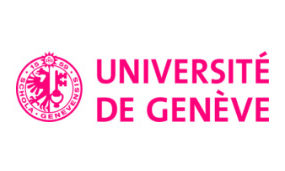
University of Geneva
Founded in 1559 by Jean Calvin, the University of Geneva (UNIGE) is dedicated to teaching, research and dialogue with society. With more than 17’000 students of some 150 different nationalities, it is Switzerland’s second largest university.

Universal Rights Group
The Universal Rights Group (URG) is a small, independent think tank dedicated to analyzing and strengthening global human rights policy. It is the only such institution in Geneva and the only think tank in the world focused exclusively on human rights.

Geneva Science-Policy Interface
Geneva Science-Policy Interface (GSPI) is a platform that strives to enhance scientific engagement with global governance actors within the Geneva ecosystem.

UNEP Europe Office
The United Nations Environment Programme (UNEP) is the leading global environmental authority that sets the global environmental agenda and serves as an authoritative advocate for the global environment.
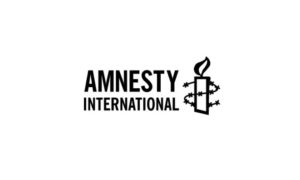
Amnesty International
Amnesty International is a global movement of more than 7 million people who take injustice personally. Amnesty is campaigning for a world where human rights are enjoyed by all.

Geneva Academy
The Geneva Academy provides postgraduate education, conducts academic legal research and policy studies, and organizes training courses and expert meetings.
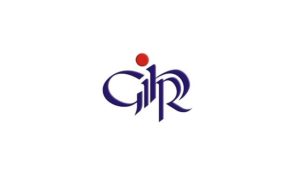
Geneva Institute for Human Rights
The Geneva Institute for Human Rights (GIHR) is a nongovernmental, nonprofit organization based in Geneva. Its key objective is to raise awareness and understanding about the importance of human rights.
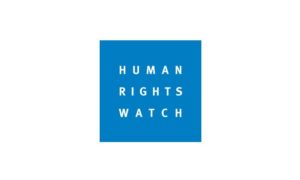
Human Rights Watch
Human Rights Watch investigates and reports on abuses happening in all corners of the world and works to protect the most at risk, from vulnerable minorities and civilians in wartime, to refugees and children in need.

UNECE Convention on Access to Information, Public Participation in Decision-making and Access to Justice in Environmental Matters | Aarhus Convention
The Aarhus Convention is created to empower the role of citizens and civil society organisations in environmental matters and is founded on the principles of participative democracy.
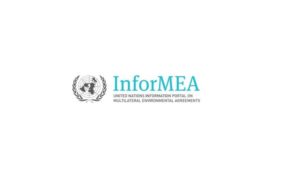
United Nations Information Portal on Multilateral Environmental Agreements
The InforMEA Initiative brings together Multilateral Environmental Agreements (MEA) to develop harmonized and interoperable information systems for the benefit of Parties and the environment community at large.
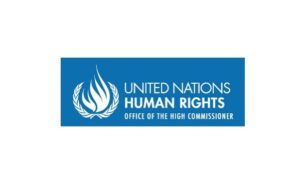
United Nations Office of the High Commissioner for Human Rights
The United Nations Office of the High Commissioner for Human Rights (OHCHR) is the leading UN entity on human rights.
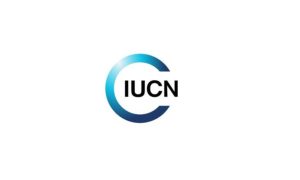
International Union for Conservation of Nature
The International Union for Conservation of Nature (IUCN) is an international organization working in the field of nature conservation and sustainable use of natural resources. It is involved in data gathering and analysis, research, field projects, advocacy, and education.

ICCA Consortium
The ICCA Consortium is an international association dedicated to promoting the appropriate recognition of and support to ICCAs (territories and areas conserved by indigenous peoples and local communities) in the regional, national and global arena. This purpose is set in the context of the broader vision of conserving biodiversity and ecological functions; nurturing the sustainable livelihoods and well-being of indigenous peoples and local communities; and achieving the full respect of their cultural diversity and individual and collective rights.
Resources
General Resources
- Advancing Environmental Rights | UNEP
- Environmental Rights Initiative | UNEP
- Promoting Greater Protection for Environmental Defenders Policy | UNEP
- The Geneva Roadmap: supporting environmental human rights defenders | University of Geneva
- The Environmental Defenders Crisis: Towards a Geneva Road Map | Geneva Science-Policy Interface
- At Risk: Understanding Contemporary Environmental Civil Society Challenges | Geneva Science-Policy Interface
- Indigenous Human Rights Defenders | UN Permanent Forum on Indigenous Issues
- Guidance of the UN Working Group on Business and Human Rights on ensuring respect for human rights defenders | UN Working Group on Business and Human Rights
Articles, Speeches and Reports
- How environmental conflicts hurt — and motivate — women activists | Grist | 15 June 2023
- Un expert de l’ONU salue le rejet par le Vatican de la « doctrine de la découverte » | UN News | 10 April 2023
- UN rapporteur on environmental defenders: ‘The French state’s response seemed largely disproportionate’ | Le Monde | 31 March 2023
UN Rapporteur on environmental defenders Michel Forst shared his view on the recent clashes between environmental defenders and the police in the context of oppositions to the construction of a water reservoir in western France, claiming that the use of physical violence when managing demonstrations is worrying. Michel Forst elaborated on this topic in an op-ed on the criminalisation of environmental defenders. - Here’s How We Protect Earth’s Defenders | Mie Hoejris Dahl | Atmos | 4 January 2023
- Threatened environmentalists have a new protector | Michelle Langrand | Geneva Solutions | 15 July 2022
- Conservation is becoming more dangerous: increasing violations and threats | IUCN | 16 March 2022
- Environmental human rights defenders must be heard and protected | OHCHR | 9 March 2022
- The Escazú Agreement, Human Rights and Healthy Ecosystems Dialogue Series | UNDP | 2022
- Report of Mary Lawlor, Special Rapporteur on the situation of human rights defenders to HRC46 (A/HRC/46/35)| UN | 24 December 2020
- Militante de la biodiversité et menacée de mort | University of Geneva | 25 November 2020
- Environmental Rule of Law: First Global Report | UNEP| 2019
- Environmental Human Rights Defenders in the Spotlight at the Human Rights Council | CIEL | 29 March 2019
- Report of Michel Forst, former Special Rapporteur on the situation of human rights defenders to the UNGA (A/71/281) | UN | 2016
GEN Events
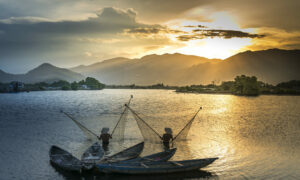
Protecting Environmental Defenders | HRC52 Side Event
20 March 2023
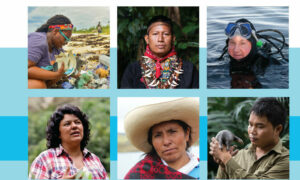

Conservation NGOs at Risk
9 March 2022

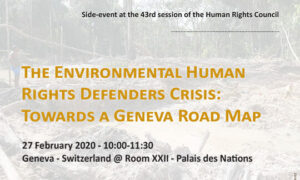
Learning
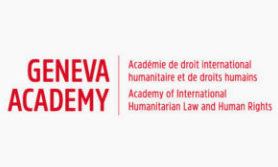
The Protection of Human Rights and the Environment
12-16 September 2022 | Geneva Academy

Mini Course on Environmental Defenders
Online Course | UN Information Portal on Multilateral Environmental Agreements (InforMEA)
Attribution
Photo by Victor Barro / Friends of the Earth International


